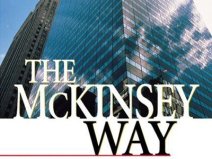January 28, 2016
What passes for acceptable school choice rhetoric, behind closed doors, is frightening.

On Tuesday, January 26, I attended a National School Choice Week forum at the University of Minnesota’s Humphrey School of Public Affairs. I went expecting a pro-school choice event, obviously, but, since the Humphrey School is one of the nation’s premier public policy graduate schools, I also expected a reasonable look at the choice movement in education.
What I found instead was appalling. The Humphrey School’s event was billed as “bipartisan,” but I quickly realized how thoroughly that word has become cover for groupthink. If both Democrats and Republicans support the dismantling of our public institutions, then shouldn’t you, too?
Let me explain. The Humphrey School event was moderated by former MinnPost education writer, Beth Hawkins. Hawkins was joined onstage–for an “informative discussion”–by former Democratic state senator and charter school pioneer Ember Reichgott Junge, current Republican state legislator and education finance committee chair, Jennifer Loon, and Richard Komer, of the Virginia-based right-wing group, the Institute for Justice.
One Democrat+one right-leaning Republican+one far-right lawyer (Komer) does not add up to a “bipartisan” panel, in my opinion. 
The panel ended up being all white, too, when invited African-American guest, George Parker, who works for the education reform group, Students First, was not able to make it. But that’s not all. The whole room was white, as far as I could see.
The audience gathered was formally dressed and appeared representative of the kind of people who have the freedom to attend mid-morning forums. It also seemed to include many state legislators. David Hann, a Republican from suburban Eden Prairie, was acknowledged, as were others.
The morning’s panel began with a quick dismissal of the desegregation lawsuit filed in Minnesota last fall, which, if successful, could require the state’s charter schools to develop and implement integration plans. All of the panelists, and moderator Hawkins, seemed to agree that the resegregation happening across the country now is simply due to “parental choice.” Reichgott Junge–the Democrat–declared herself “not neutral” on this topic, and told the audience not to worry because “this is not the civil rights era.” What she meant, I guess, was that we solved all of that bad racism stuff back in the ’60’s. Case closed. 
Can I mention how very odd all of this was? We were sitting in the Hubert H. Humphrey School of Public Affairs. Humphrey! He was one of Minnesota’s leading advocates–and most eloquent agitators–for civil rights, back when such views posed a direct threat to the Democratic party, which had grown quite comfortable with the racist “states’ rights” rhetoric of its Southern Segregationist members.
Is our current “bipartisan” political world growing quite comfortable with racist “school choice” rhetoric? Is any attempt to regulate charter schools a “frontal attack on choice,” as Hawkins said? Really? Is there no room on the school choice bandwagon for critical thinking?

Is there any safe place to express concern that the rapid resegregation of our public school system is not a happy accident, brought on by the heavenly solution of school choice?
Apparently not at the Humphrey School’s National School Choice Week forum.
As I left the forum, I could not stop thinking about Humphrey and his legacy. Back in front of my computer, I found a 2011 New York Times opinion piece about him, written by Rick Perlstein. Both Humphrey and Ronald Reagan would have turned 100 in 2011, and this connection, and contrast, framed Perlstein’s piece.
Here are the first two paragraphs:
JANUARY was the 100th anniversary of Ronald Reagan’s birth, and the planet nearly stopped turning on its axis to recognize the occasion. Today is the 100th anniversary of Hubert H. Humphrey’s birth, and no one besides me seems to have noticed.
That such a central figure in American history is largely ignored today is sad. But his diminution is also, more importantly, an impediment to understanding our current malaise as a nation, and how much better things might have been had today’s America turned out less Reaganite and more Humphreyish.
That’s it. This is the framework I have been looking for. What would our education policy discussions be like today, if America had turned out “less Reagnite” and “more Humphreyish”? The hammering narrative of failure, applied with force to our nation’s public school system, found fertile ground in the Reagan era, of course, through the overhyped “Nation at Risk” report. That report helped propel America away from further investment in public schools, and towards school choice schemes (hint: privatization).
Deregulation, Perlstein calls it. And that was the flavor of the day at the Humphrey School’s event. Deregulation in the education “marketplace” will solve our problems. In fact, according to the “bipartisan” panel, there is nothing a deregulated, choice-based education system cannot solve. Universal preschool? Great idea, said Reichgott Junge, but too expensive. Let’s charterize the preschool market, instead, and throw some scholarships, otherwise known as vouchers, on top of it.
And while we are at it, perhaps we should follow panelist Richard Komer’s line of thinking, regarding the Constitution. Komer waxed enthusiastic about all of the wonderful things a deregulated, voucher-filled education landscape could offer–including more discipline, more uniforms, more religion, and more racist, elitist assumptions about what “poor minorities” want. Public schools could do this, too, he said, if only the Constitution was not standing in the way.
And no one in the room, no one gathered in the Humphrey School (except for one clear outsider who was swiftly dismissed), stood up or spoke up to challenge the frightening threads so visible in Komer’s–and, frankly, the panel’s–ideas.
The new groups are not concerned
With what there is to be learned
They got Burton suits, ha you think it’s funny
Turning rebellion into money—The Clash, “White Man in Hammersmith Palais“
No grant, no guru, no outside funding source. My work is entirely funded by my very kind and generous readers. Thank you to those who have already donated!
[Exq_ppd_form]




